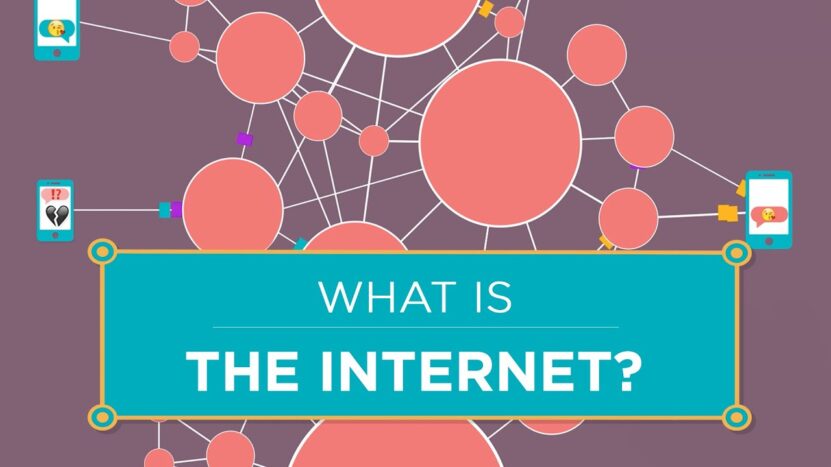1982 is considered the birth year of the internet: a truly revolutionary invention that has changed, no, transformed the way we live.
We used to visit cinemas and theaters to entertain ourselves, but now it’s just movie night at home.
We used to go out to buy stuff, but now the stuff is being delivered to our doorstep.
We used to go out to play, but now we play in the room with our eyeballs stuck to a 144hz screen.
We used to meet our long-distance friends and family, but now it’s just liking their Instagram posts.
The advent of the internet has been nothing less than a revolution. If you want to immerse yourself in the visuals of how the internet has evolved in 4k then watch Triumph of the Internet on YouTube. Just make sure you have an internet connection that can play 4k content and don’t burn a hole in your pocket. On such an account, Mediacom is considered an affordable choice in the US. The ISP offers dependability, little to no outages, and internet plans peaking up to a whopping 1 gig that can actually play 4k content seamlessly.
Having said that, the internet has evolved into a platform for unparalleled multimedia experiences, including 4K video editing and production. Click here to learn more about video editing. The first attempt wasn’t intended for consumers but for military purposes.
What we see today as the internet is a result of decades of hard work and dedication. Let’s dive into what the internet is and its origin.
What is the Internet?

It is a network of machines that communicate with each other. Internet is just the acronym for interconnected networks. Taking you back to the time, when communication across the regions used to be through birds. It took days to deliver a message, written on a paper and tied to the claw of the bird.
What happens now? You iMessage your friend living on the opposite side of the World and it takes literally milliseconds to send. This interconnected network of computers has become so efficient that it opened possibilities that were just a hint of imagination once.
Origin of the Internet
The Advanced Research Projects Agency Network (ARPA) was founded in 1958 by the US Military to create an efficient system of connected machines that can communicate with each other when placed in different locations.
The first successful connection dates back to 1967 when two machines, one at Stanford University and the other at UCLA, exchanged some messages.
But who was the inventor of the internet? Was it some scientists working at ARPA?
No. The inventors of the interconnected network are Bob Kahn and Vint Cerf. They took the foundation and concepts from the early experiments of ARPA and built something that ARPA couldn’t do. It was first used and tested by the US military. Later in the early 90s’, August 6, 1991 to be precise, it opened up for the public with the name World Wide Web.
In 1994, WebCrawler, World’s first ever full-text search engine was built that allowed the user to search keywords on websites. It was pretty basic for the search engines like Google we use today.
Internet and the Google
It’s November 2024 when we are writing this article for you. Most naturally you are reading this after a Google search. Google is the most searched site as of the date.
Larry Page and Sergey Brin put their heads together and built a project named BackRub (now Google).
From the day it was built, gave out the results to the users in a clever way. Only those results were shown that were relevant, thanks to its intelligent algorithm named PageRank which was later patented by Larry and Sergey.
Now almost every day we use Google, excluding the days we are outdoors without the internet. Internet and Google go hand-in-hand together because of how popular and useful the search engine has become.
Social Media’s Transformative Impact

Social media, through platforms like Facebook, Twitter, Instagram, and TikTok, has significantly altered our communication landscape. It transcends geographical barriers, fostering global connectivity and community. Individuals can instantly connect and share their lives, thoughts, and experiences. This new era of digital interaction has democratized information dissemination, allowing news and trends to spread rapidly and influence public opinion.
However, this revolution brings challenges, including concerns over privacy, online harassment, misinformation, and the impact on mental health. Despite these issues, social media remains crucial in modern life, empowering movements like #BlackLivesMatter and #MeToo and reshaping business marketing strategies.
Navigating the Digital Divide
The digital divide underscores the uneven access to internet resources, influenced by income, geographic, and educational disparities. High-speed internet in urban and developed areas contrasts sharply with inadequate access in rural and underserved communities, affecting opportunities in education, work, and healthcare.
Efforts to bridge this gap include government and private initiatives like “Connect America,” aiming to extend broadband to remote areas. Affordable internet schemes for low-income households and school-provided devices are steps toward equitable online access. The COVID-19 pandemic further highlighted the urgency of addressing this divide, emphasizing the need for equal digital opportunities for a more inclusive society.
The Internet in 2024

The World we live in is the World of the internet. Yeah, we know it’s a run-of-the-mill-like statement but it is true. Almost everything we do is related to the internet. Our work, entertainment, and lifestyle are somehow linked back to the internet.
With manufacturers like Samsung, Apple, and Xiaomi working to build cutting-edge products every year to make the most use of the internet, our lives are becoming increasingly easy. Foldable phones that cut out the hassle of carrying a tablet while Apple Vision Pro entirely eliminates carrying anything, are some examples of the handiness we have today.
Investments in the tech sectors have skyrocketed. Can we see a World with flying cars and marvelous technology that is yet a fiction limited to movies? Only time will tell.

